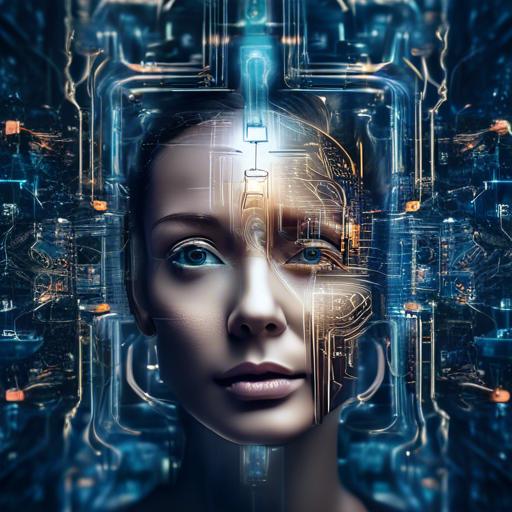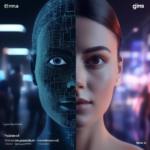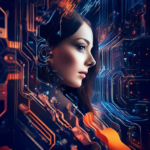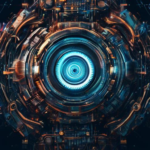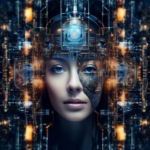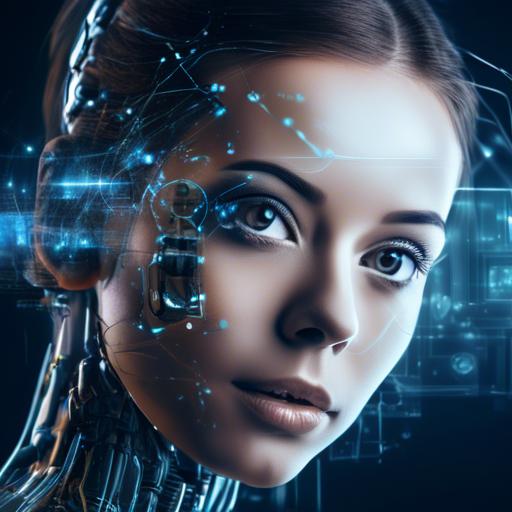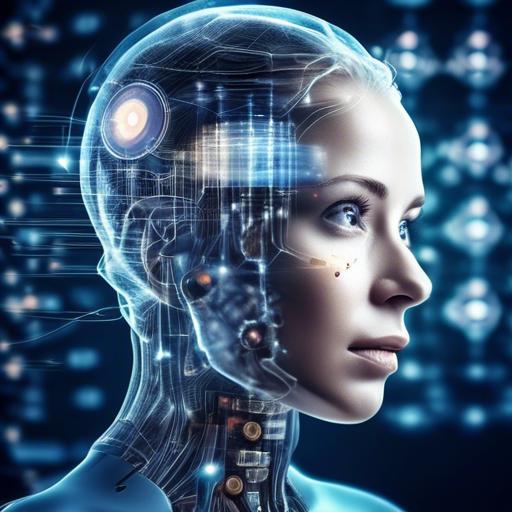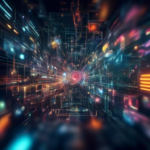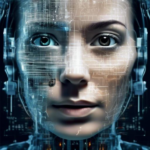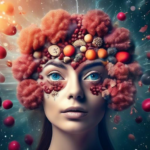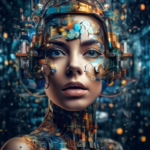Imagine a world where your wildest creative visions spring to life with just a whisper of inspiration, where your artistic process isn’t bogged down by tedious tasks or technical limitations, but instead flows from one brilliant idea to the next with seamless precision. This isn’t the stuff of science fiction; it’s the exciting reality being shaped by Artificial Intelligence. In this wondrous intersection of technology and artistry, AI isn’t just a tool—it’s your collaborative partner, ready to elevate your creative workflow to unprecedented heights. Whether you’re a seasoned content creator, an innovative designer, or a storyteller with a thousand tales to tell, prepare to embark on a journey that harmonizes human ingenuity with the unparalleled capabilities of AI. Together, we’ll explore the myriad ways this cutting-edge technology can amplify your creativity, streamline your processes, and transform your brilliant concepts into astonishing realities.
Table of Contents
- Understanding AI in the Creative Realm
- Streamlining Brainstorming with AI-powered Tools
- Revolutionizing Design Processes Through Machine Learning
- Harnessing AI for Content Generation and Editing
- Enhancing Collaborative Efforts with AI-driven Platforms
- Maximizing Productivity with Automated Workflow Solutions
- Balancing Human Intuition and Artificial Intelligence
- Ethical Considerations in AI-enabled Creativity
- In Retrospect
Understanding AI in the Creative Realm
The integration of AI into creative workflows has ushered in a new era of innovation and efficiency. From design and music to writing and film, artificial intelligence is acting as a powerful collaborator rather than a mere tool. Imagine an artist brainstorming ideas with an intelligent assistant that not only understands their style but also suggests groundbreaking concepts they might not have considered. This fusion of human creativity and machine intelligence is redefining what’s possible.
One of the main ways AI transforms creativity is through automation of tedious tasks. **Graphic designers**, for example, can save hours traditionally spent on image editing. AI can:
- Remove backgrounds
- Enhance photo quality
- Generate color palettes
This allows artists to focus more on the imaginative aspects of their projects, turning ideas into works of art faster than ever before.
Another significant advantage is AI’s capability to learn and adapt to distinct creative preferences. In **music production**, AI tools can analyze genres, tempos, and instruments to create unique compositions that fit an artist’s style. Imagine having an infinite library of personalized sounds at your fingertips, each note harmonizing with your creative vision. This is not about replacing the musician, but offering a springboard for inspiration and experimentation.
Moreover, AI can accelerate the process of content creation. For **writers and content creators**, natural language processing algorithms can:
- Provide real-time editing suggestions
- Help generate engaging headlines
- Assist in structuring content
These tools act like a second set of eyes, ensuring clarity and enhancing the quality of writing while preserving the author’s unique voice.
| Creative Field | AI Application | Benefit |
|---|---|---|
| Graphic Design | Image Editing | Time-saving |
| Music Production | Composition Generation | Inspirational |
| Writing | Content Structuring | Quality Enhancement |
Streamlining Brainstorming with AI-powered Tools
Harnessing the potential of AI in brainstorming can dramatically shift how ideas are generated, refined, and executed. By utilizing advanced algorithms and machine learning, creative professionals can experience a myriad of benefits that streamline the ideation process.
- Automated Idea Generation: AI tools can generate a plethora of ideas based on given inputs, providing endless inspiration and saving valuable time.
- Enhanced Collaboration: AI-driven platforms can facilitate real-time collaboration, ensuring diverse perspectives are easily integrated.
- Data-Driven Insights: These tools can analyze existing data to identify trends and insights, guiding the creative process strategically.
Consider the ways in which AI can enhance the efficiency and creativity of brainstorming sessions:
| Feature | Benefit |
|---|---|
| Natural Language Processing | Translates vague concepts into actionable ideas. |
| Pattern Recognition | Identifies successful strategies by analyzing historical data. |
| Predictive Analysis | Forecasts the potential impact of creative ideas. |
Moreover, AI-powered tools are equipped to manage and organize vast volumes of data effortlessly. By utilizing these tools, you can:
- Automatically categorize ideas for easier reference.
- Identify and prioritize the most promising concepts.
- Visualize creative processes through dynamic mind maps and flowcharts.
AI’s role in brainstorming is not to overshadow human creativity but to complement and enhance it. By integrating these innovative tools into your workflow, you unlock new dimensions of creativity and efficiency, paving the way for groundbreaking ideas to flourish.
Revolutionizing Design Processes Through Machine Learning
Machine learning is ushering in a new era of creativity, acting as a digital companion for designers rather than a replacement. **AI algorithms can significantly reduce the time spent on repetitive tasks**, allowing designers to focus more on the innovative aspects of their projects. Imagine not needing to fuss over fine-tuning font alignment or color grading—AI can handle these nuances in seconds.
- Automated Layout Suggestions: AI can quickly analyze design patterns and offer layout suggestions tailored to the specific project, significantly reducing the trial and error phase.
- Enhanced Image Recognition: Designers can utilize machine learning to recognize patterns in large image datasets swiftly, perfect for creating cohesive visual themes.
- Style Transfer: This technology enables the blending of different artistic styles, giving creatives a palette that includes Picasso’s cubism alongside modern minimalism.
Additionally, AI can assist in **real-time collaboration** by analyzing different design elements and offering instant, data-driven feedback. This means designers can make more informed decisions and iterate rapidly without losing creative control. For instance, if a color palette seems off-balance, the machine learning model can suggest alterations based on successful designs from a vast database.
| Feature | Benefit |
|---|---|
| Automated Layouts | Faster design iterations |
| Real-Time Feedback | Enhanced collaboration and accuracy |
| Pattern Recognition | Improved design consistency |
| Style Transfer | Broader creative possibilities |
In the realm of UX/UI, **predictive analytics** powered by machine learning can forecast user behavior and preferences. This foresight allows designers to create interfaces that are not just visually appealing but highly intuitive and user-centered. For instance, predictive models can suggest optimal navigation paths, improving the overall user experience.
By integrating machine learning into creative workflows, designers don’t lose their artistic touch; they amplify it. The intersection of AI and design opens a world where technology serves as an enabler rather than a competitor, creating room for both precision and imagination to coexist beautifully.
Harnessing AI for Content Generation and Editing
Artificial Intelligence has ushered in a new era of possibilities for content creators, offering a range of tools that can transform how we craft, refine, and elevate our work. One of the most revolutionary capabilities AI delivers is its aptitude for generating and editing content, making it a steadfast ally for writers, marketers, and designers alike.
Imagine having a tireless assistant that thrives on monotonous tasks, freeing you up for more creative endeavors. **AI can automate content creation**, churning out blog posts, social media updates, and even video scripts in mere minutes. By leveraging natural language processing (NLP) models, these tools can mimic human-like writing styles, adapt tones, and cater to various audiences seamlessly.
Beyond generation, AI also excels in **editing and proofreading**. Tools like Grammarly and Hemingway App use AI algorithms to scan content for grammatical errors, stylistic inconsistencies, and readability issues, ensuring that the final output is polished and professional. These platforms can also suggest vocabulary enhancements and structure changes, aiding writers who are looking to refine their draft to perfection.
Moreover, AI’s capacity for content optimization cannot be overstated. For SEO-focused tasks, AI tools can analyze keywords, recommend meta tags, and suggest improvements to boost search engine rankings. Here’s a snippet of what AI can optimize:
- Keyword Density: Ensuring balanced keyword usage without overstuffing
- Meta Descriptions: Crafting compelling descriptions that improve click-through rates
- Readability Scores: Adjusting content complexity to match target audience preferences
When it comes to **multimedia content**, AI can also assist by suggesting images, generating relevant graphics, or even editing videos. Tools like Canva’s Magic Resize or Adobe’s AI-enhanced features allow creators to produce visually stunning content with ease and efficiency.
| AI Tool | Primary Use | Key Features |
|---|---|---|
| Grammarly | Proofreading | Error detection, Vocabulary enhancement |
| Canva | Design | Magic Resize, Template suggestions |
| Hemingway App | Editing | Readability improvement, Style recommendations |
The integration of AI into creative workflows not only enhances productivity but also unleashes a new level of creativity and precision. By taking over the more mechanical aspects of content creation and editing, AI empowers creators to focus on what truly matters: crafting compelling narratives and captivating audiences.
Enhancing Collaborative Efforts with AI-driven Platforms
In the realm of collaborative endeavors, AI-driven platforms stand as revolutionary tools capable of transforming traditional teamwork environments. These platforms facilitate a more seamless and fluid exchange of ideas, bringing together diverse talents in a synergistic workflow. Through the incorporation of AI, team members can leverage intelligent systems to enhance creativity, streamline communication, and boost productivity.
One of the most powerful features of AI-driven platforms is the **ability to automate routine tasks**, freeing up valuable time for team members to focus on more creative and strategic projects. By using AI to handle mundane activities such as scheduling meetings, sorting emails, and managing calendars, creative professionals can dedicate more time to brainstorming and ideation. This shift not only amplifies productivity but also sustains a high level of creative energy within the team.
Furthermore, AI-powered tools **enhance communication channels** by analyzing and summarizing key points from lengthy discussions, generating auto-transcriptions of meetings, and suggesting actionable insights. Such capabilities ensure that no critical idea is lost and enable all team members to stay aligned and informed. The result is a more cohesive and informed collaborative effort where everyone is on the same page.
AI’s capability to **provide insightful analytics** serves as another major advantage. By evaluating past project data, AI can pinpoint successful strategies and areas of improvement. This data-driven approach empowers teams to make informed decisions, allocate resources more effectively, and optimize their workflows. Consider the following table that highlights how AI-driven insights can support different aspects of a creative project:
| Creative Aspect | AI-driven Insight | Impact |
|---|---|---|
| Concept Development | Trend Analysis | Fresh, Relevant Ideas |
| Designing | Aesthetic Suggestions | Enhanced Visual Appeal |
| Content Creation | SEO Optimization | Increased Visibility |
Additionally, AI-driven platforms foster a **more inclusive and participatory environment** by offering user-friendly interfaces that accommodate all team members regardless of their tech-savviness. This inclusivity ensures that everyone’s unique perspective contributes to the collaborative effort, enriching the collective output. By breaking down technical barriers, AI enables a truly democratic collaboration space where creativity can thrive.
Maximizing Productivity with Automated Workflow Solutions
In the bustling realm of creative work, time is a precious commodity. To make every second count, **automated workflow solutions** can be a game-changer. Integrating AI into your daily processes not only streamlines tasks but also sets the stage for enhanced creative output.
One of the standout benefits of AI-driven workflow solutions is the ability to automate repetitive tasks. Activities such as data entry, email sorting, and scheduling can be seamlessly handed over to intelligent systems, allowing you to focus on more strategic and inventive roles. Picture this: your mornings no longer start with a mundane checklist but with a fresh canvas, ready for your innovative ideas.
| AI Solution | Creative Benefit |
|---|---|
| Automated Scheduling | More time for ideation and brainstorming |
| Email Categorization | Reduces clutter, improves focus |
| Data Entry Automation | Frees up time for design and creation |
Moreover, AI analytics offer **invaluable insights** that drive more informed decision-making. By analyzing user engagement metrics, content performance, and market trends in real-time, creators can adapt strategies with agility. Imagine having a digital assistant that learns from every campaign, continuously refining approaches to maximize impact.
- Content curation: AI tools help sift through vast amounts of information, suggesting relevant content ideas.
- Personalized experiences: Tailor your creations to the audience’s preferences, derived from AI insights.
- Enhanced collaboration: AI-powered platforms support seamless communication and project management among team members.
Ultimately, embracing AI in your creative processes can lead to a harmonious blend of technology and imagination. With mundane tasks managed by intelligent systems, you gain the freedom to explore uncharted territories, pushing the boundaries of creativity.
Balancing Human Intuition and Artificial Intelligence
Balancing the raw creative genius of human intuition with the analytical power of artificial intelligence is akin to orchestrating a symphony where each instrument plays to its strengths. In today’s creative workflows, **AI can act as a silent collaborator**, elevating the quality and efficiency of projects while allowing human creators to bask in the realm of inspiration.
- **Enhancing the Brainstorming Phase:** AI tools can quickly analyze vast amounts of data, offering a plethora of ideas that might take humans days to generate. Whether it’s suggesting unique plot twists for a story or presenting groundbreaking designs, AI encourages out-of-the-box thinking and broadens the creative horizon.
- **Streamlining Repetitive Tasks:** Time-consuming activities such as color correction in photography or keyword optimization in content creation can be largely automated. This frees up valuable time for creative professionals to focus on the nuanced aspects of their work that only human intuition can perfect.
- **Personalizing Audience Engagement:** By analyzing audience behavior and feedback, AI can offer tailored insights that help creators better understand their audience, leading to more impactful content and deeper connections.
| Aspect | Human Intuition | AI Assistance |
|---|---|---|
| Idea Generation | Inspired by experience and emotions | Data-driven suggestions |
| Repetitive Tasks | Time-consuming and tedious | Automated and efficient |
| Audience Understanding | Instinctual guesses | Detailed analytics |
Yet, it’s crucial to maintain a **delicate balance**. While AI brings speed and efficiency, the color palette of human creativity adds depth and emotion. This partnership cultivates an environment where ideas not only flourish but also resonate on a deeply personal level.
Ultimately, the synergy between human intuition and artificial intelligence can revolutionize creative workflows. By maximizing the strengths of both, we unlock a new era of innovation where creativity is not just enhanced but redefined.
Ethical Considerations in AI-enabled Creativity
As we harness the power of AI to bolster our creative endeavors, it’s crucial to navigate the ethical landscape with mindful deliberation. AI presents a unique set of challenges and opportunities that underscore the need for clear ethical guidelines. Foremost, the issue of **authorship** comes into play. When AI-generated works blur the lines between human and machine contributions, it becomes essential to establish protocols to attribute credit fairly, ensuring that the true nature of creation is acknowledged and respected.
Furthermore, the potential for **bias in AI algorithms** calls for vigilant oversight. AI systems trained on biased data can perpetuate and amplify prejudices, leading to works that reinforce stereotypes or marginalize certain groups. Creators must insist on transparent models and diverse datasets that minimize systemic biases. This way, AI can act as an inclusive ally, fostering creativity that’s reflective of a rich tapestry of human experiences.
- Data Privacy: Safeguarding personal information used in AI training is imperative to protect individuals’ privacy.
- Consent and Transparency: Users should be made aware of AI’s role in the creative process and consent to their data use.
- Intellectual Property: Clear frameworks must be developed to delineate ownership of AI-generated content.
By considering these factors, we can ensure that AI serves as a collaborative partner in creativity rather than a contentious force. Responsible development and deployment of these technologies can help mitigate potential drawbacks while maximizing the enriching potential AI offers to creative workflows. By embedding ethical considerations at every step, we enrich the creative tapestry, ensuring it is equitable and representative of all voices.
| Consideration | Action Steps |
|---|---|
| Bias Mitigation | Utilize diverse datasets and periodic audits |
| Transparency | Disclose AI involvement and data usage |
| Fair Attribution | Establish clear authorship protocols |
Striking this balance between innovation and ethics not only enriches creative processes but also ensures the integrity and inclusiveness of the content produced. This approach fosters trust among audiences and creators alike, paving the way for a future where AI and human creativity coexist harmoniously.
In Retrospect
it’s clear that artificial intelligence has the power to revolutionize creative workflows and unleash untapped potential within each of us. By embracing these innovative tools and harnessing their capabilities, we can elevate our creativity to new heights and achieve unprecedented levels of success. So let’s embrace the future, let’s harness the power of AI, and let’s create a world where imagination knows no bounds. The possibilities are endless, and the future is bright. Let’s embark on this exciting journey together, and let’s see where our creativity can take us. The sky’s the limit!

